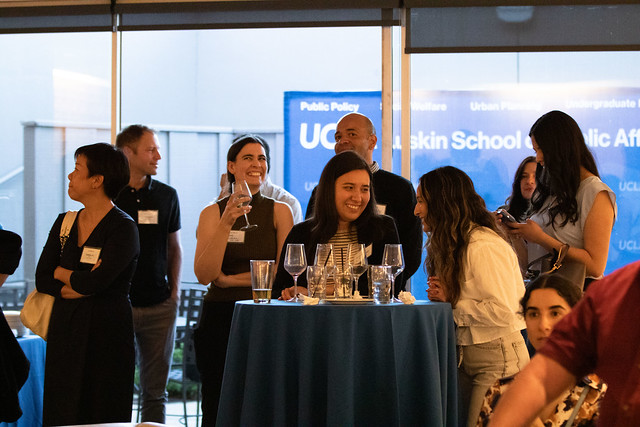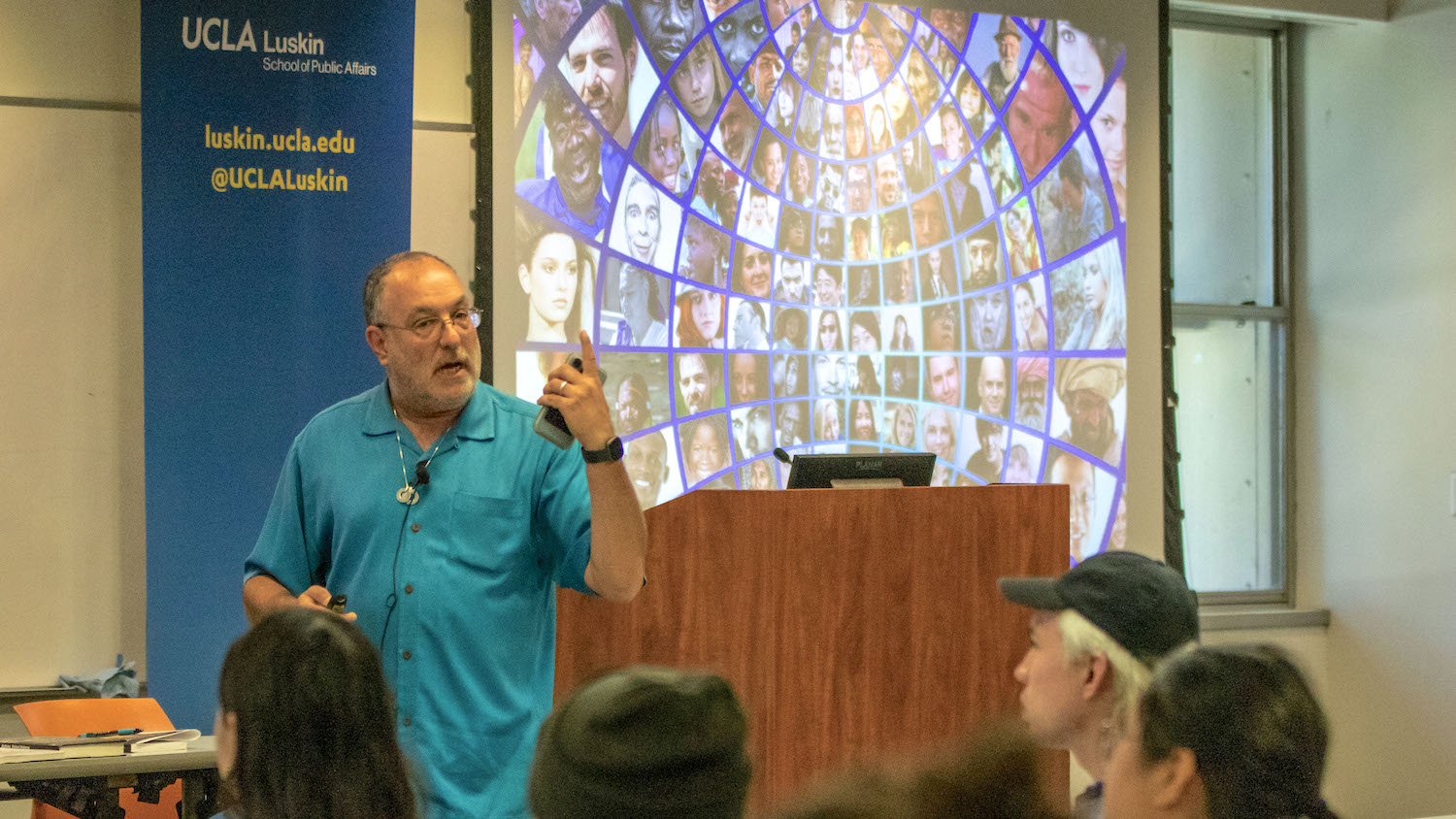UCLA Public Policy Community Celebrates Exceptional Alumni and Students Reception highlights the 'incredible, influential, important, world-transforming things our alumni are doing'
The UCLA Luskin Public Policy community came together this spring to connect and reconnect with one another and honor selected students and alumni for their outstanding achievements.
The April 20 reception at the UCLA Faculty Club gave Master of Public Policy students, graduates, faculty and staff the opportunity to network face-to-face for the first time since before the COVID-19 pandemic.
In his welcoming remarks, interim chair and Professor Mark Peterson said that hearing updates about the work of former students leaves him “simply dazzled — not just by the numbers, but by the incredible, influential, important, world-transforming things our alumni are doing.”
During the pandemic, individuals honored as UCLA Luskin Public Policy Alumni of the Year were announced virtually. This year’s reception put a long-awaited public spotlight on award recipients from the past four years:
Regina Wallace-Jones MPP ’99 is Alumna of the Year for 2023. With a background in engineering and policy, Wallace-Jones ascended to several prominent Silicon Valley positions, culminating in her selection this year as CEO and president of ActBlue, the tech nonprofit that facilitates online donations to progressive organizations and candidates. She has also served in public office as a city councilwoman, vice mayor and mayor in East Palo Alto.
Sandeep Prasanna MPP/JD ’15 is Alumnus of the Year for 2022. After serving in staff positions in the U.S. Congress and Department of Justice, Prasanna recently completed work as investigative counsel on the U.S. House of Representatives Select Committee to Investigate the January 6th Attack on the U.S. Capitol. “Working to preserve democracy is quite a good gig for an MPP alum,” Peterson remarked. Prasanna is now a senior advisor with the law firm Miller & Chevalier Chartered.
Isaac Bryan MPP ’18 is Alumnus of the Year for 2021. Bryan turned his record of effective advocacy and community leadership in Los Angeles into a successful bid for the California Assembly in 2021. Since taking office, he has authored over 24 bills and co-authored over 300 bills and resolutions. Bryan’s chief of staff is former classmate Caleb Rabinowitz MPP ’18.
Max Gomberg MPP ’07 is Alumnus of the Year for 2020. Gomberg was selected for his work mapping out strategies for climate change mitigation for the California State Water Resources Control Board. He has since resigned the post, publicly accusing the state of being unwilling to adopt transformational policies. Gomberg now works as an independent consultant on water policy. “Max took a bold step when he resigned from his position in protest,” Peterson said. “Sometimes standing out means really standing up.”
Bryan accepted his award in person. Addressing current students and recent graduates at the reception, he said, “The dreams you have about how you can make a difference in the world, the things that you want to do for the community, for society, for your family, for whatever drove you to a program like this, instead of an MBA or something else — you can make that difference and you can make it as quickly as you need to.
“Just stay focused, stay hungry and build the kind of relationships like the ones in this room, to do good work together.”
Also honored at the reception were students who received the Alumni Leadership and Service Fellowships, made possible by donations from MPP alumni. The awards recognize public service, resilience and leadership at UCLA and in the community. The 2022-23 recipients are Lana Zimmerman and Donald Zelaya, and the 2023-24 recipients are Samuel Newman and Sydney Smanpongse.
Peterson reminded those at the reception of the many paths students can take to make an impact after graduation.
“Just take in that range of alumni careers: federal, state and local government. Legislative and executive branches. Appointed and elective offices. Nonprofit organizations on the front edge of the tech revolution. All making a difference,” he said. “That’s what is on your horizons, current MPP students!”
View photos from the UCLA Luskin Public Policy reception on Flickr.






